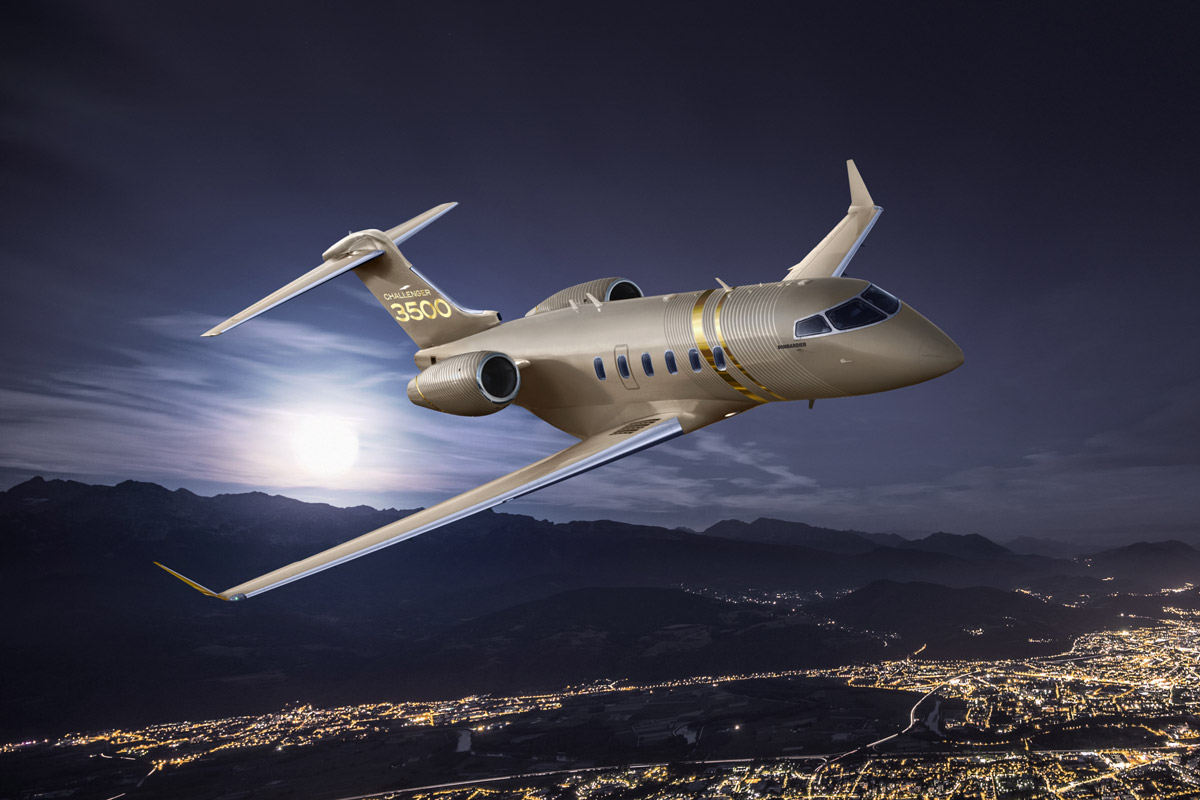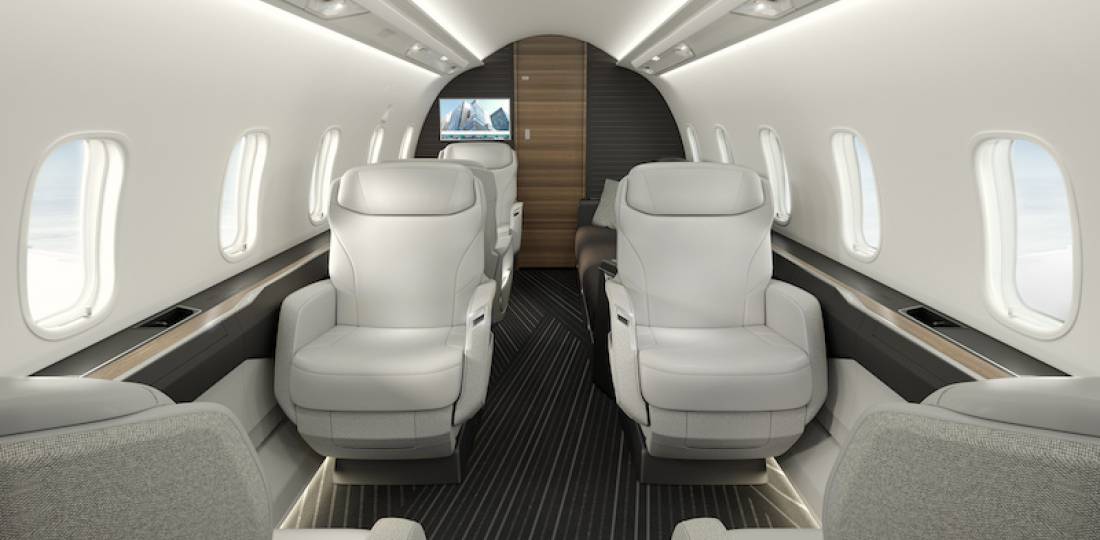Bombardier is proud to present the industry’s best super mid-size business jet, the new sustainably designed Challenger 3500 aircraft. The latest evolution of Bombardier’s hugely successful Challenger platform was introduced to the market today during an exclusive celebration in Montréal, Canada, and through a worldwide virtual launch.

The next-generation Challenger 3500 aircraft, the evolution of the Challenger 350 aircraft, introduces a redesigned interior with intelligent and sustainably minded cabin features crafted to combine comfort with function. Further elevating the passenger experience, Bombardier’s exclusive and patented Nuage seat is included in the aircraft’s standard configuration – the first time a seat of this calibre is available in the super mid-size segment. As part of an overall focus on passenger wellness, this new business jet will provide a reduced cabin altitude of 4,850 ft at 41,000 ft, representing a 31% improvement compared to its predecessor.
The Challenger 3500 aircraft also introduces several innovative technological features, such as the industry’s first voice-controlled cabin to manage lighting, temperature and entertainment systems, the first wireless chargers throughout the cabin and the only 24-inch, 4K display in its class. In the cockpit, Bombardier introduces a standard-equipped autothrottle system to the Challenger 3500 flight deck, which offers the most baseline features in its class. This new business jet is expected to enter service in the second half of 2022.
“We are thrilled to launch a business jet that features all the best-selling elements of the Challenger platform – impressive performance, consistent reliability, exceptional smooth ride – while elevating the cabin experience for our customers,” said Éric Martel, President and Chief Executive Officer, Bombardier. “Building on the success of the unrivalled Global 7500 business jet cabin, the Challenger 3500 aircraft prioritizes what our customers value most: a truly exceptional cabin experience.”

As Bombardier once again raises the bar for business jet excellence, the company continues to rely on a rich pool of talented suppliers around the world, including FACC operating in Austria and in Laval, Canada, which manufactures the cabinets and other key cabin components for the Challenger 3500 business jet such as the sidewalls, headliners, bulkheads and passenger service units.
The latest Challenger aircraft was also designed through a sustainable lens. Following Bombardier’s recent groundwork on making the Global 7500 aircraft the first business jet ever to receive an Environmental Product Declaration (EPD), the Challenger 3500 aircraft will be the first business jet in the super mid-size segment to have an EPD. In addition to this important declaration of the aircraft’s life cycle environmental footprint, other environmentally conscious initiatives include the option for customers to choose from a selection of high-end sustainable materials for the cabin.
Another sustainable initiative is the introduction of the first eco app solution in business aviation. The eco app is developed by SITA, a leading specialist in air transport communications and information technology, using its existing eWAS Pilot with OptiFlight solution. The innovative tool is designed to specifically optimize flight plans and reduce fuel burn, further decreasing the aircraft’s environmental footprint.
In line with Bombardier’s environmental objectives, the Challenger 3500 flight test program is using an innovative sustainability approach designed by World Fuel Services. The solution removes some of the carbon emissions from the fuel of the test flights by using book-and-claim Sustainable Aviation Fuel (SAF) purchases and then attains carbon neutrality by retiring offsets to balance the remaining carbon emissions from the jet fuel.
The new Challenger 3500 business jet is the latest example of Bombardier’s innovative spirit and approach to continuous improvement. Like its predecessor, the Challenger 3500 business jet is expected to have a strong market presence worldwide and will be a significant economic driver in North America.

